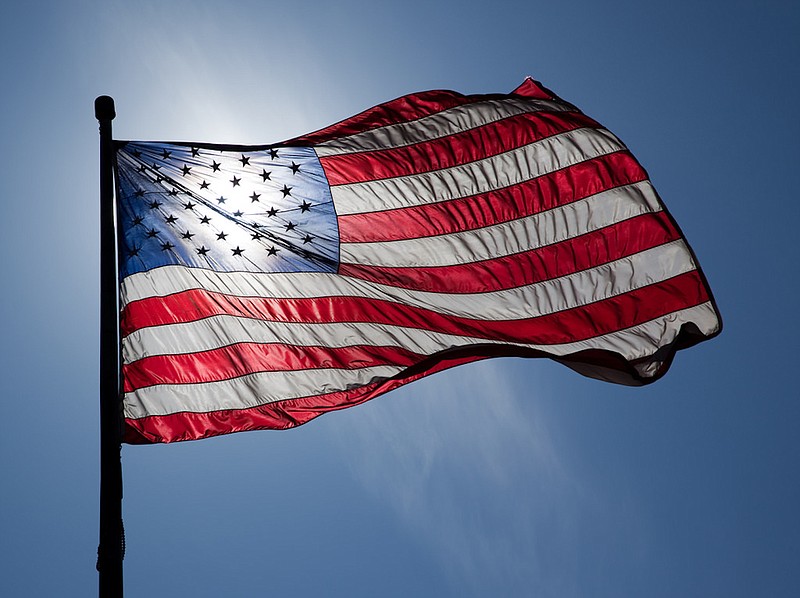It seems an inevitability that every year around the Fourth of July, certain media will publish a series of articles reminding people how unremarkable it is to live in America.
This year The New York Times' opinion team didn't disappoint, publishing a video that declared, "we're just OK," and explaining to viewers that when compared to other industrialized nations, the U.S. really doesn't stack up.
The video cites "a whopping 18% poverty rate, closer to Mexico than Western Europe," lower high school science, reading and math levels compared to other nations, and high rates of obesity that result in far higher healthcare costs, to name of few of America's unforgivable blemishes.
The video, of course, mockingly mentions the areas in which America excels, including "civilian gun ownership, mass shootings, TV watching, prescription drug abuse, prison population-Oh, and almost No. 1 on environmental damage, edged out by China."
The narrator suggests that at times, it would be understandable to confuse America for a developing country and ultimately determines that one's understanding or sense of American greatness is determined by personal wealth and little else.
The narrator's mocking continues with a quip about American liberty-"But we have freedom in America, and everyone's jealous or something," reminding viewers that hey, other countries have freedom, too, and we don't even use ours, since just over half the population participates in national elections. Never mind that (however ill-advised), abstaining from an election is a critical element of freedom.
The video was of course intended to be provocative and to challenge the reflexive notion of some that American exceptionalism is permanent and static-an honor forever justified by long-dead Americans' collective contributions to the world, (although, it's worth noting that even the greatness of the nation's Founders is a point of contention these days).
And here, the video's creators may have a point, albeit a small one.
The United States' status as a great nation, secured early and defended courageously over the ensuing centuries, isn't a guarantee. Every successive generation is charged with living up to the high standards set by those who first envisioned America as a beacon on a hill. That's a difficult challenge, especially during a modern age where the primacy of the individual has subverted the pursuit of the common good. But I digress.
There have been, and will continue to be, notable failures along our nation's moral course. Still, to borrow a phrase popularized by the great, yet flawed American, Martin Luther King, Jr., its arc will always bend toward justice and freedom. Thanks to the high ideals established when America was still a nascent nation, it always (ultimately) has.
Despite The New York Times' poo-pooing of American freedom as something ordinary or banal, freedom is a hallmark of American greatness. It is what has made many of its other attributes (and failures) possible. And over the years, despite arguments to the contrary, freedom in the U.S. has vastly expanded-from women's rights to race relations and civil rights to gay rights-and it has happened in a remarkably short period of time.
There are legitimate reasons for concern over our nation's direction. Political extremism on both ends of the spectrum, although hardly a U.S.-specific problem, has the potential to limit freedoms in ways the Founders foresaw; and we have the power to prevent.
The images of migrants crossing our nation's southern border and enduring awful conditions in detention centers for many reasons are difficult to stomach. Yet they are the starkest reminder that our nation is more than just OK. It is great. People wouldn't be clamoring to get here if it weren't.
It's best we keep that in mind not only on the Fourth but every day after.

